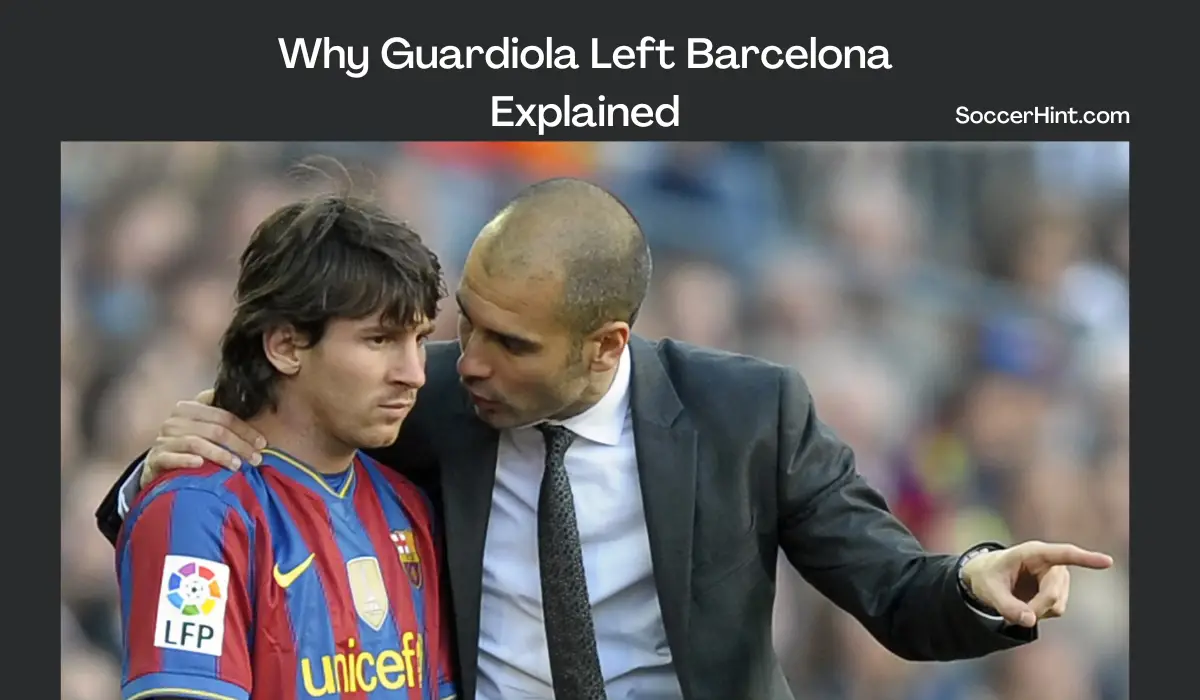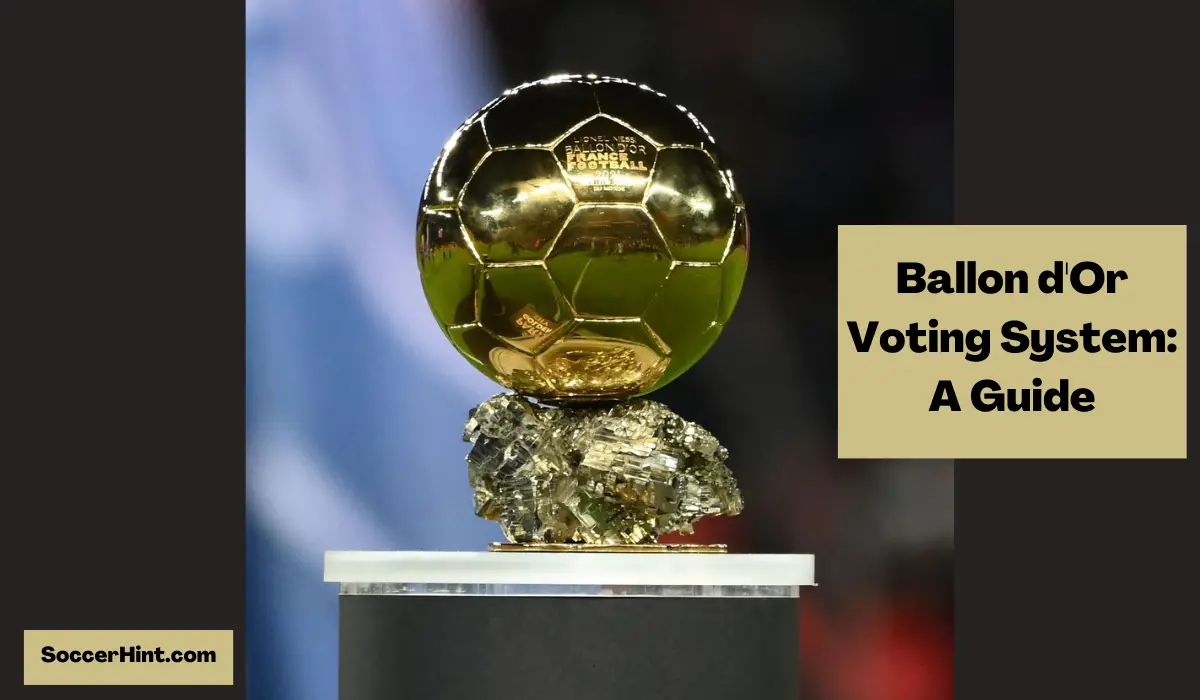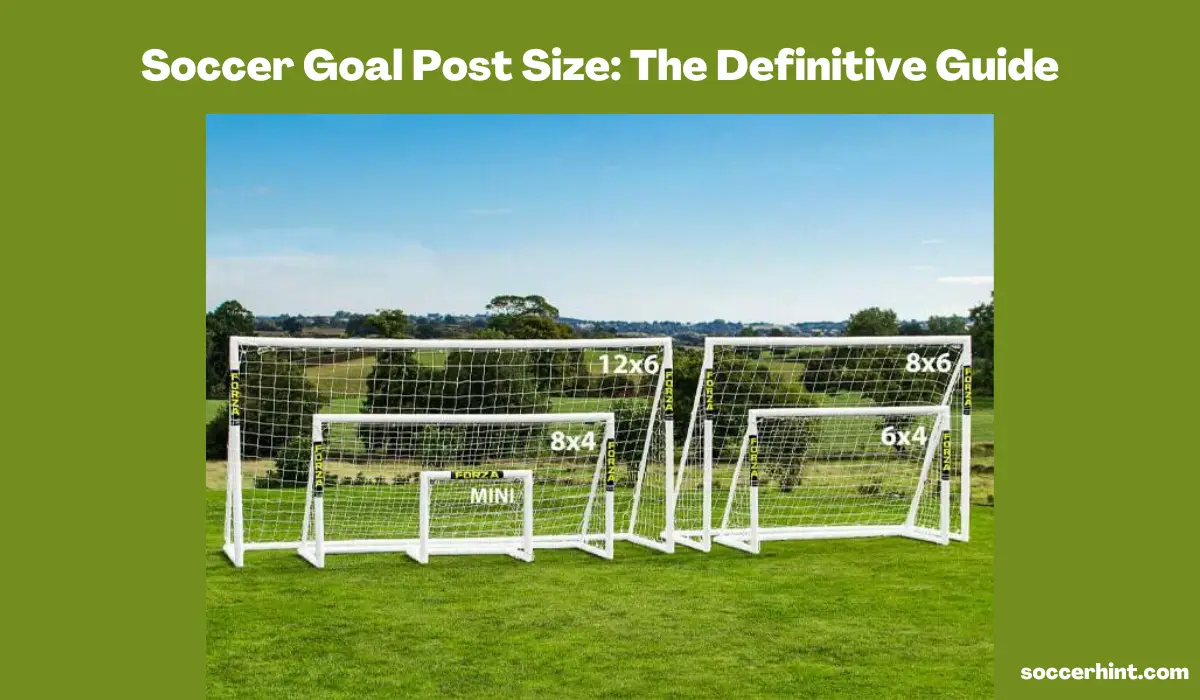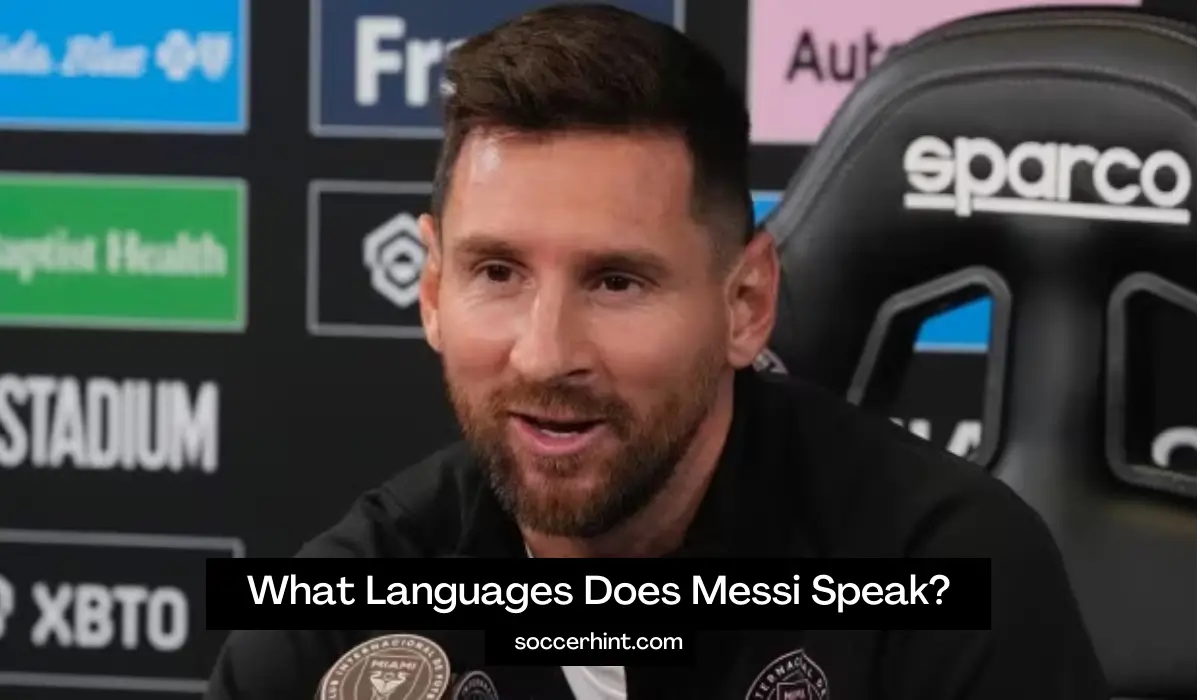Pep Guardiola’s era at Barcelona remains etched in football history as a golden age of unparalleled success. From 2008 to 2012, his tactical brilliance propelled the team to 14 major trophies, including three La Liga titles and two UEFA Champions League victories. The sheer dominance, evidenced by statistics and numbers, made Guardiola’s sudden departure from Barcelona all the more surprising. Many football fans then wondered why Guardiola left Barcelona.
Well, this article meticulously explores all the myriad factors behind this unexpected move, leaving no stone unturned.
Read Also: Why Barca Fans Hate Figo
7 Main Reasons Why Guardiola Left Barcelona
1. Dressing Room Discord – Insights from Sandro Rosell
Sandro Rosell’s revelation about a disagreement with the players is one of the primary reasons why Guardiola left Barcelona. While specific details may remain undisclosed, it is essential to explore potential internal dynamics that reached a tipping point. Instances of discord within the dressing room could have affected team morale and performance. One notable incident was the reported fallout between Guardiola and Zlatan Ibrahimović during the 2009-2010 season.
Ibrahimović, a high-profile signing, clashed with Guardiola over playing time and tactics. This disagreement reportedly led to tension within the squad. The subsequent departure of Ibrahimović at the end of the season could be seen as a reflection of Guardiola’s commitment to maintaining harmony within the team. Unravelling such specifics is crucial to understanding how interpersonal relationships and conflicts might have played a role in shaping Guardiola’s decision to leave.
Read Also: Why Did Zidane Retire? Find Out
2. Deep Rivalry with Mourinho and Real Madrid
The rivalry between Guardiola and Mourinho, heightened by the Barcelona-Real Madrid competition, provides a compelling backdrop to Guardiola’s departure. Beyond the tactical battles on the pitch, the emotional and psychological toll of facing a formidable opponent consistently cannot be overlooked. One iconic moment that intensified this rivalry was the infamous 2010-2011 Champions League semi-final clash between Barcelona and Real Madrid.
The intensity of the matches, coupled with the off-field mind games between Guardiola and Mourinho, created an atmosphere of extreme competition. The constant scrutiny, media attention, and the pressure to outwit a managerial counterpart of Mourinho’s stature likely contributed to Guardiola’s mental fatigue. Delving into specific incidents and moments that intensified this rivalry enriches our understanding of the intricate factors at play in Guardiola’s decision to seek a new challenge.
Read Also: How Many Champions League Matches Are Played Per Season?
3. Exhaustion After Four Years of Unrelenting Intensity
Guardiola’s coaching philosophy at Barcelona was synonymous with a high-pressing, possession-based style that demanded relentless effort from both players and staff. The statistics from his four-year tenure are a testament to the intensity: numerous matches, both domestic and international competitions, and a commitment to playing attractive football. One example that encapsulates this relentless style is the famous 2011 Champions League final against Manchester United. Barcelona’s players tirelessly pressed and controlled the game, showcasing the peak of Guardiola’s tactical approach.
However, the toll of sustaining such intensity for an extended period should not be underestimated. The physical and emotional exhaustion became evident as the seasons progressed. In post-match interviews and press conferences, Guardiola occasionally hinted at the challenges of maintaining such a demanding playing style. For instance, after the 2011-2012 season, he spoke about the need for renewal and the difficulty of keeping the players motivated. This exhaustion likely played a crucial role in his decision to step away from Barcelona, as the strain of maintaining a peak performance level became increasingly demanding.
Read Also: How To Become A Football Coach Without Playing
4. Personal Ambition – Craving a New Challenge
Guardiola’s departure from Barcelona went beyond a strategic career move; it was a manifestation of his personal ambition. To understand this aspect, we must explore what Guardiola sought in this “new challenge.” One illustrative example is the trajectory of his coaching career after leaving Barcelona.
Guardiola moved to Bayern Munich in 2013, venturing into a different football landscape and league. This shift not only showcased his desire for continuous growth but also demonstrated his willingness to prove himself in diverse football environments. A detailed examination of his decision-making process during this transition sheds light on the intricacies of his coaching philosophy, emphasizing long-term career aspirations beyond the immediate success at Barcelona.
Read Also: Why Does Premier League Match Start So Early?
5. Tactical Burnout and Adaptability Challenges
Guardiola’s tactical approach at Barcelona was revolutionary, but sustaining such a distinctive style over time presented challenges. The high-pressing, possession-oriented football that defined his tenure required a high level of precision and adaptability. One notable consideration is the evolution of opponents’ tactics and strategies to counter Barcelona’s style.
As seasons progressed, teams became more adept at neutralizing Barcelona’s strengths. Guardiola’s challenge was not only to maintain the effectiveness of his system but also to adapt to new trends in football. Tactical burnout, a concept where a coach’s preferred style becomes predictable and less effective over time, might have been a factor in Guardiola’s decision.
6. Media Scrutiny and External Pressures
Coaching a club of Barcelona’s stature invites constant media scrutiny and external pressures. The relentless spotlight on both individual and team performances can create an environment of heightened stress. One instance that exemplifies the media scrutiny is the coverage of Barcelona’s temporary dip in form during the 2011-2012 season.
As results became less consistent, media speculation about Guardiola’s future intensified. The external pressures, coupled with the expectation of continuous success, may have played a role in shaping Guardiola’s decision-making process. Exploring how media narratives and external expectations influenced his mindset provides a nuanced understanding of the external factors that contributed to his departure from Barcelona.
Compare: Premier League vs Champions League Analysis
Conclusion
Digging into why Guardiola left Barcelona, the big deal seems to be the team’s dressing room. There was some kind of argument or disagreement with the players, and that, folks, is a pretty big deal. It’s like the heart of the team having some trouble.
Pep might have felt like he gave his all for four years, running at full speed, and that’s exhausting. But the standout reason, the one that shines the most, is this dressing room thing. When the folks in the team aren’t getting along or having a fallout, it’s like trying to drive a car with a flat tire – not smooth at all.
Now, leaving Barcelona turned out to be a good move for Pep. He got himself a fresh challenge at Bayern Munich and then Manchester City and recently helped the Cityzens to win the big shot – the Champions League. It’s like he switched gears and found success in a different ride. So, the dressing room discord, that little fight in the team, becomes the big player in why Guardiola said adiós to Barcelona. And well, turns out, it was a win-win for everyone in the end.





